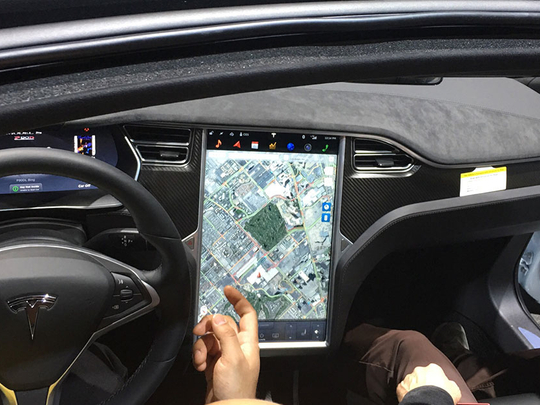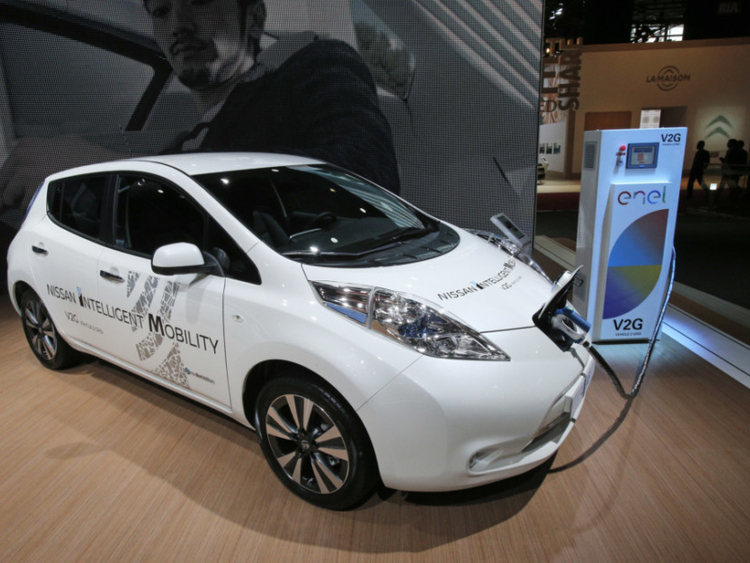
London: Cars must be driven out of cities to tackle the UK’s air pollution crisis, not just replaced with electric vehicles, according to the UK government’s top adviser.
Prof Frank Kelly said that while electric vehicles produce no exhaust fumes, they still produce large amounts of tiny pollution particles from brake and tyre dust, for which the government already accepts there is no safe limit.
Toxic air causes 40,000 early deaths a year in the UK, and the environment secretary, Michael Gove, recently announced that the sale of new diesel and petrol cars will be banned from 2040, with only electric vehicles available after that.
But faced with rising anger from some motorists, the plan made the use of charges to deter dirty diesel cars from polluted areas a measure of last resort only. The intervention from Kelly heightens the government’s dilemma between protecting public health and avoiding politically difficult charges or bans on urban motorists.
“The government’s plan does not go nearly far enough,” said Kelly, professor of environmental health at King’s College London and chair of the Committee on the Medical Effects of Air Pollutants , official expert advisers to the government.
“Our cities need fewer cars, not just cleaner cars.”
Ministers were forced to produce an air pollution plan after twice being sued in the courts over illegal pollution levels.
But it was criticised as “woefully inadequate” and “lacking urgency” by city leaders and “inexcusable” by leading doctors.
Charging dirty cars
The government’s own research showed the fastest and most cost-effective measure to cut the nitrogen dioxide (NO2) pollution largely caused by diesels is to charge dirty cars to enter urban areas.
Electric vehicles emit no NO2 gases but do produce small particle pollution from the wear on brake discs and tyres and by throwing up dust from roads. A recent European commission research paper found that about half of all particulate matter comes from these sources.
“While governments don’t currently pay much attention to particulate matter, it is in fact highly polluting, with strong links to cardiopulmonary toxicity,” said Kelly, in an article in the Guardian.
The Royal College of Physicians estimates that 29,000 people die early each year from particle pollution , more than the 23,500 premature deaths attributed to NO2.
The combined total is 40,000 because some people are harmed by both pollutants.
NO2 levels are illegally high in most urban areas, allowing legal action to be taken, but small particle levels are not.
'Legal but unhealthy air'
The legal limit in England and Wales for particulate matter is two and a half times the World Health Organisation’s (WHO) guideline set in 2005 and which has already been adopted in Scotland.
London’s air is above the WHO limit but below that in England and Wales, said Kelly: “So it’s legal but unhealthy.”
In any case, both the UK government and the WHO agree there is no safe level of small particle pollution. Kelly said enabling people and goods to move easily and cheaply around cities such as London is crucial, especially as their populations are growing fast, and backed better public transport as the solution:
“The safe and efficient movement of people around the capital can only be achieved through a clean and expanded mass transit system — served by buses, overground train and the underground system — and by as much active transport in the form of walking and cycling as is feasibly possible.”
“Encouragingly, attitudes toward car ownership do appear to be changing, with younger Londoners increasingly replacing little-used vehicles with car club membership and ride-sharing apps,” he said.
Oliver Hayes, Friends of the Earth air pollution campaigner, said: “Electric cars are critical in the fight against climate change and deadly air pollution, but they’re not a panacea. We must now build the infrastructure that reassures ordinary people that cycling and walking is safe, and invest in public transport that is consistently clean, cheap and reliable.”
Roadside pollution
A government spokeswoman said: “Reducing roadside pollution is a priority for this government — which is why we have committed GBP3bn to help towns and cities take action against harmful [NO2] emissions caused by dirty diesels. Next year the government will publish a comprehensive Clean Air Strategy which will address other sources of air pollution.”
Kelly said the traffic pollution problems facing the UK affect cities around the world, which are also increasing rapidly in size.
“By 2050, nearly two-thirds of the world’s population will live in urban areas. How we manage and plan for growing urbanisation will be key to so many global aspirations from improving air quality and human health, maintaining economic success and combatting climate change.”













